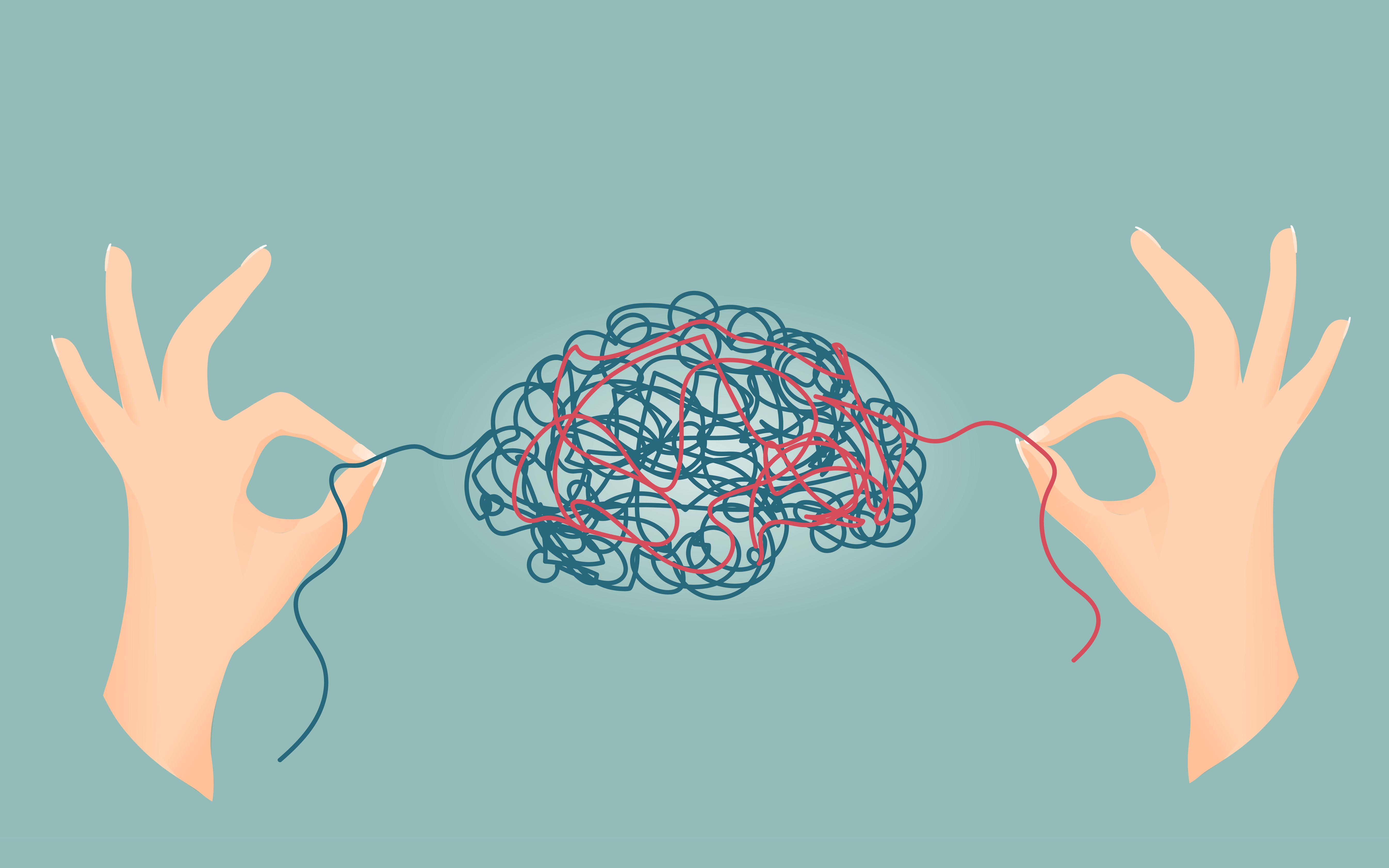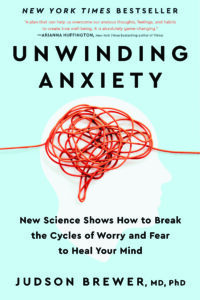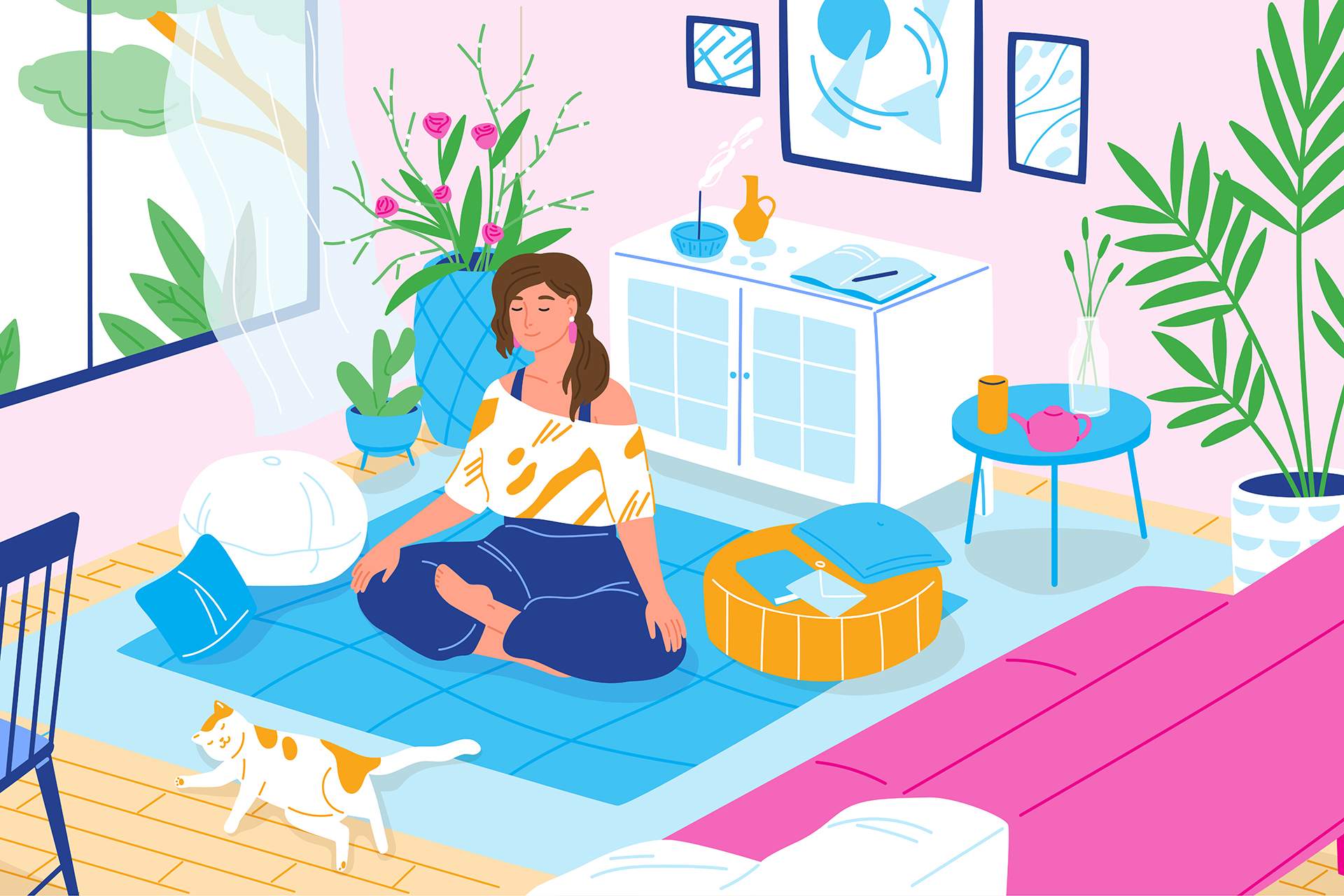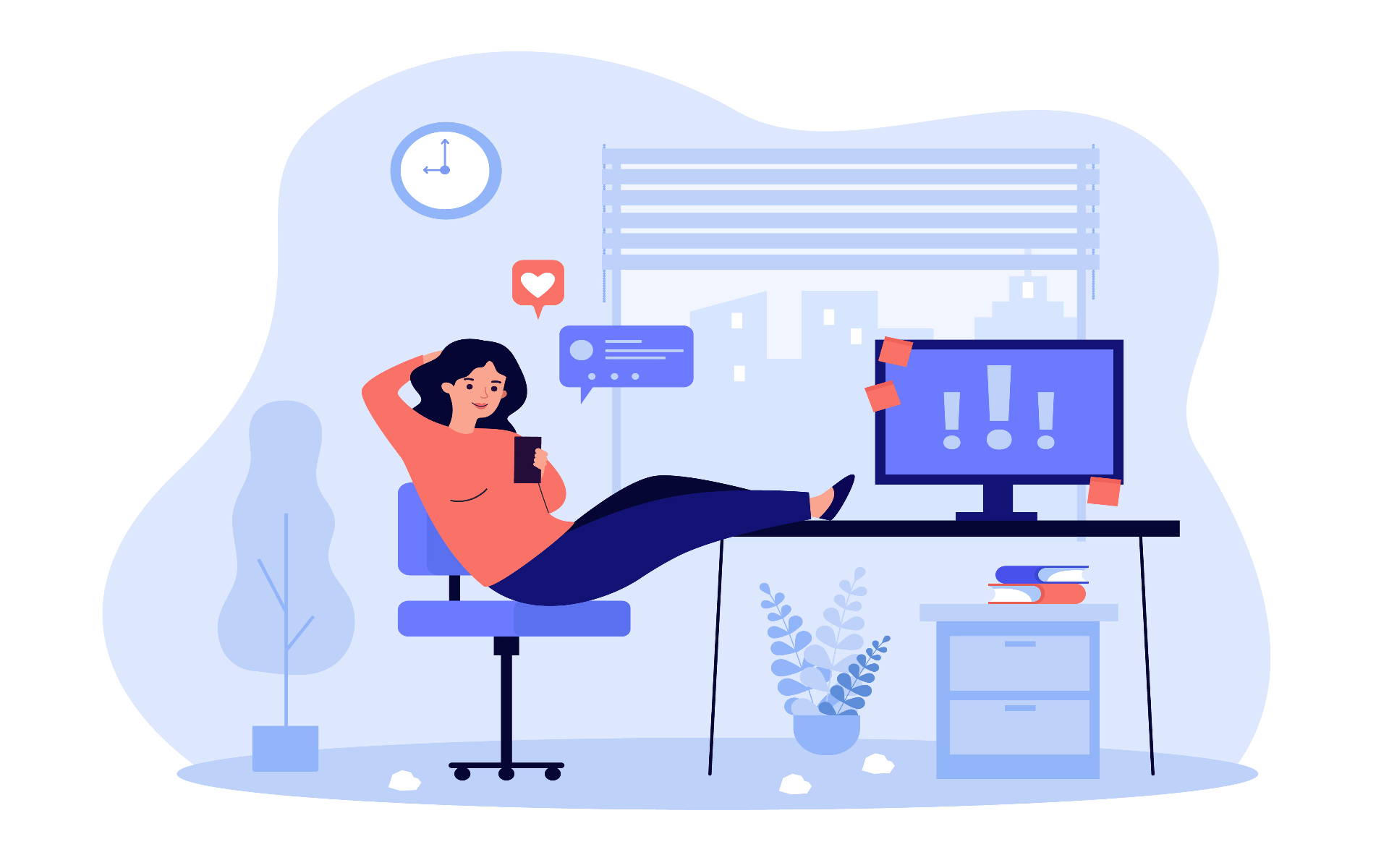As a psychiatrist and neuroscientist, I’ve been doing research for decades, and I’ve loved learning and discovering new things about the way our minds work. But I’d have to say that the single most interesting and important connection I’ve made is the link between anxiety and habits—why we learn to get anxious, and how even that becomes a habit.
Anxiety hides in our habits. It hides in our bodies, as we learn to disconnect from our feelings through myriad different behaviors. While psychologists and treatment specialists have identified several strategies for breaking harmful habits like anxiety, overeating, and procrastination, a therapy’s effectiveness often depends on one’s individual genetic makeup. Fortunately, modern science may have revealed how certain ancient practices can bring the old and new brain together to defeat these harmful habits, no matter whether you’ve won or lost the genetic lottery.
Anxiety hides in our habits. It hides in our bodies, as we learn to disconnect from our feelings through myriad different behaviors.
Wait—we only have one brain, right? you may be asking. You’re not wrong, yet in a difference sense, our brain is more complex. What’s sometimes called our “old brain”—that is, the collection of brain structures that evolved early on in human existence—is set up to help us survive. In addition to reward-based learning (the process that sets up daily habits and even addictions), it has another trick up its sleeve: It takes what it learns and moves the learning into “muscle” memory as soon as it can. In other words, our brains are set up to form habits so we can free up the brain space to learn new things.
Imagine getting up every morning and having to relearn how to stand, put on your clothes, walk, eat, talk—you’d be exhausted by noon. In “habit mode,” we act quickly, without thinking, as though our old brain is telling our new brain: “Don’t worry, I’ve got this. You don’t have to spend energy here and can think about other things.” This division of labor is partly how the newer parts of our brain that evolved comparatively later, such as the prefrontal cortex, were able to evolve the ability to think and plan ahead.
This is also why old habits are hard to change. No one wants to spend a beautiful weekend indoors cleaning a cluttered closet when there’s still space to shove in more junk. It’s only when the closet is stuffed to the gills that you are forced to clean it. Well, it’s the same with your brain, which won’t bother with the old stuff until it reaches a critical level. The newer parts of your brain would much rather spend time on “more important” matters such as planning your next vacation, answering emails, learning the latest tricks for staying calm in a frantic world, and researching what the current nutritional trends are.
Besides serving as the location for thinking and planning ahead, the prefrontal cortex is also the part of the brain that you count on for controlling your urges. If you see a doughnut, your old brain impulsively tries to pounce on it, thinking, Calories! Survival! The prefrontal cortex also helps you keep your New Year’s resolutions (and ironically, it’s that same inner voice that judges you when you fail).
Now, an anxiety habit doesn’t just magically disappear simply by the realization that it is born and bred through repetition. The first step is to recognize our “habit loops”—patterns that consist of a trigger, a behavior, and a result. Then we can use strategies in order to change entrenched bad habits—even an anxiety habit.
4 Ways to Unhook from a Habit Loop
1. Willpower
When you tap into your willpower reserve, your new brain is supposed to tell your older brain to take a hike and simply order the salad instead of the hamburger, right? If you’re anxious, you should be able to tell yourself to relax, and then be more relaxed. Willpower seems like it should work, but there are two big caveats.
First, recent research is calling into question some of the early ideas on willpower. Some of these studies have shown that willpower is genetically endowed for a lucky subset; still other studies have argued that willpower is itself a myth. Even studies that acknowledge willpower as real tended to find that people who exerted more self-control were not actually more successful in accomplishing their goals—in fact, the more effort they put in, the more depleted they felt. Buckling down, gritting your teeth, or forcing yourself to “just do it” might help in the short term (or at least make you feel like you are doing something), but are unlikely to work in the long term.
Second, while willpower may be fine under normal conditions, when you get stressed (saber-toothed tiger, email from the boss, fight with a spouse, exhaustion, hunger), your old brain takes control and overrides your new brain, basically shutting the latter down until the stress is gone. So exactly when you need your willpower—which resides, remember, in the prefrontal cortex/new brain—it’s not there, and your old brain eats cupcakes until you feel better and your new brain comes back online. Think of the prefrontal cortex this way: As the youngest and least evolutionarily developed part of the brain, it is also the weakest.
If we found it easy, when anxiety reared its ugly head, just to tell ourselves to
stop being anxious, I would happily be in another line of work. That’s not how our brains work, especially when stress and anxiety are shutting down the very parts that are supposed to be reasoning us through a tough spell. If you don’t believe me (or the data), try this: The next time you’re anxious, just tell yourself to calm down and see what happens.
2. Substitution
If you have a craving for X, do Y instead. Like willpower, substitution relies on the new brain. This strategy is backed by a lot of science and is one of the go-to strategies in addiction psychiatry. For example, if you want to quit smoking but crave a cigarette, eat candy instead of lighting up. This works for a subset of folks, but as research from my lab and others has shown, it may not uproot the craving itself. The habit loop stays intact—the behavior is simply changed to something healthier. (Okay, okay, we can argue about how healthy candy is later, but you get the idea.) Since the habit loop is still there, this also makes it more likely that you will fall back into the old habit at some point in the future.
Substitution is also a strategy suggested for use in handling stress and anxiety. For example, when you’re anxious, distract yourself by looking at pictures of puppies on social media. This won’t fix our anxiety (nor our procrastination), and our brains start to tire of these tactics.
3. Prime Your Environment
If you are tempted by ice cream, don’t keep cartons of it in the freezer. Again, this strategy involves the pesky new brain. Several labs studying priming an environment have found that people with good self-control tend to structure their lives in such a way that they don’t need to make self-control decisions in the first place. Getting into the habit of exercising every morning or buying healthy food at the grocery store makes staying fit and cooking nutritiously a routine, so it’s more likely to stick. There are two caveats here: (1) You have to actually get into a habit of doing the healthy thing; and (2) when you slip, because your brain has grooved your old habits much more deeply than your new ones, you’re prone to fall back into the old habit pattern and stay there.
How does priming your environment work for anxiety? You can’t not keep anxiety in your freezer or avoid the anxiety store so you aren’t tempted to pick on of its 31 flavors up on your way home from a hard day at work. As nice as an “anxiety-free zone” in your house sounds, even if you build it, the anxiety will come.
4. Mindfulness
Jon Kabat-Zinn, who developed the Mindfulness-Based Stress Reduction (MBSR) program, defines mindfulness as “the awareness that arises through paying attention on purpose, in the present moment, nonjudgmentally.” Basically, Kabat-Zinn is pointing to two aspects of experience: awareness and curiosity.
Let’s unpack that a bit. Our old brains react to positive and negative reinforcement to determine what to do, and then are really good at turning that behavior into habits. If you aren’t aware that you’re doing something habitually, you will continue to do it habitually. Kabat-Zinn describes this in terms of operating on autopilot. If you’ve driven the same road a thousand times, your trip becomes pretty habitual. You tend to zone out and think of other things while you’re driving—sometimes to the point where you don’t even remember how you got home from work. Is this magic? No, it’s habit.
Building awareness through mindfulness helps you “pop the hood” on what’s going on in your old brain. You can learn to recognize your habit loops while they’re happening, rather than “waking up” at the end of them when you’ve almost crashed the car.
Once you’re aware of your habit loops—when you’re on autopilot—you can then get curious about what is happening. Why am I doing this? What triggered the behavior? What reward am I really getting from this? Do I want to keep doing this?
Curiosity is a key attitude that, when paired with awareness, helps you change habits—a connection backed up by research done in my lab and by others. Curiosity is key to being open and receptive to change. Carol Dweck, a professor and researcher at Stanford University, talked about this when she contrasted fixed and growth mindsets. When you’re stuck in old habit loops (including judging yourself), you’re not open to growth. Staying out of habit mode frees up the new brain to do what it does best: make rational and logical decisions.
While scientific research into mindfulness is still in its early stages, studies from multiple labs have found that mindfulness specifically targets the key links of reward-based learning. For example, my lab found that mindfulness training was key in helping smokers recognize habit loops and be able to decouple cravings from smoking. In other words, patients could notice
a craving, get curious about what it felt like in their bodies (and minds), and ride it out, instead of habitually smoking. Breaking this habit loop led to five-times-greater quit rates than those from the current gold-standard treatment.
My lab found some remarkable shifts in habitual behaviors when people learn to understand that habit-loop process and apply mindfulness techniques. Learning to pay attention led to behavior change not only with smoking but also with problem eating and even, as our clinical studies show, with anxiety itself.
How I Interrupt My Worst Habit Loop
You know the maxim, “Don’t just do something, sit there!”? This is a simple and powerful paradox that has had big effects on me both personally and professionally. If a patient of mine is getting anxious or worried while in my office (which can result from simply telling me about something that has happened or discussing an upcoming event), I might catch that social contagion and become anxious or worried (“Oh no, this is serious. Will I be able to help her/him?”).
Why? For one, if I start going down the anxiety rabbit hole and my prefrontal cortex has trouble thinking, I might habitually react to my own anxiety and jump in to try to “fix” my patient. This usually results in making things worse, as then my patient doesn’t feel that I understood him or her, or the solution isn’t really a good one because we haven’t gotten to the root cause of what was making him or her anxious (because we were inadvertently focusing on me). Rather, by being there, deeply listening to my patients, I am often doing the best thing I can do for them in that moment: empathizing, understanding, and connecting. My willpower instinct, which is to do something, is a habit loop itself (well-meaning but misguided) that I can simply observe. Observing that instinct—letting it bubble up in my consciousness before it fades— is really the only necessary “action,” and ironically the most effective one.
From Unwinding Anxiety: New Science Shows How to Break the Cycles of Worry and Fear to Heal Your Mind by Judson Brewer with permission from Avery, an imprint of the Penguin Publishing Group, a division of Penguin Random House, LLC. Copyright © 2021 by Judson A. Brewer.
read more
Meditation for Anxiety
Explore how mindfulness and meditation can help soften feelings of anxiousness, reduce stress, and calm a panic attack.
Read More
Can’t Stop Procrastinating? Here’s How to Break the Cycle
Can’t stop procrastinating? Here are a few daily tips from Dr. Steel on how you can combat procrastination one day at a time.
Read More
Your Brain Predicts (Almost) Everything You Do
Cutting-edge neuroscience shows that your brain isn’t built for thinking—it’s made to predict your reality, and you have more power over that perception than you might think.
Read More







